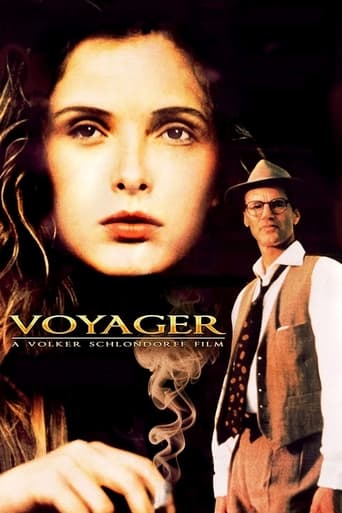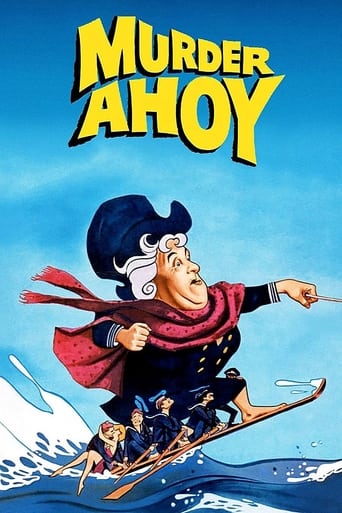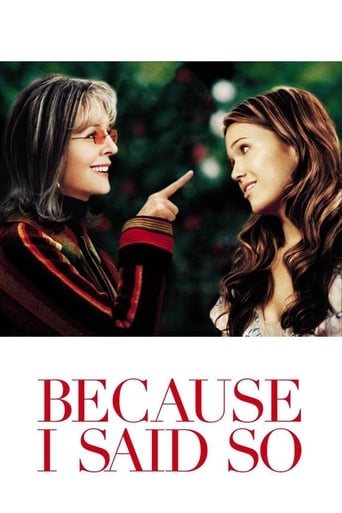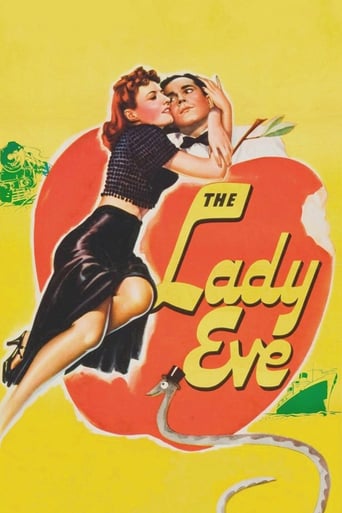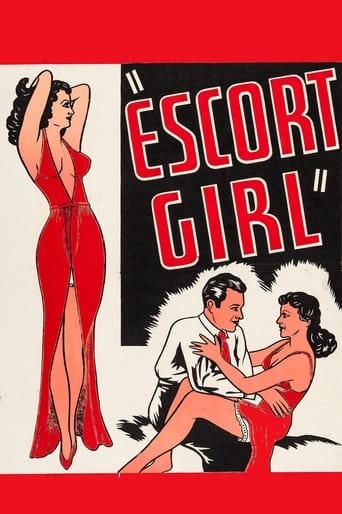Voyager (1991)
Walter Faber has survived a crash with an airplane. His next trip is by ship. On board this ship he meets the enchanting Sabeth and they have a passionate love affair. Together they travel to her home in Greece, but the rational Faber doesn't know what fate has in mind for him for past doings.
Watch Trailer
Cast
Similar titles
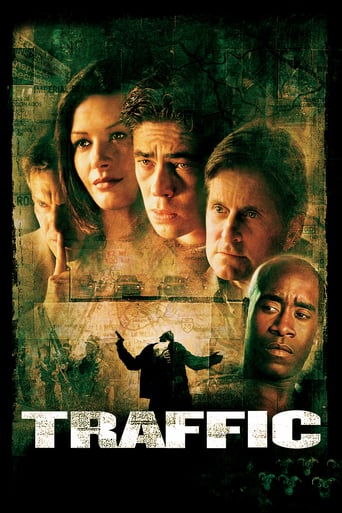
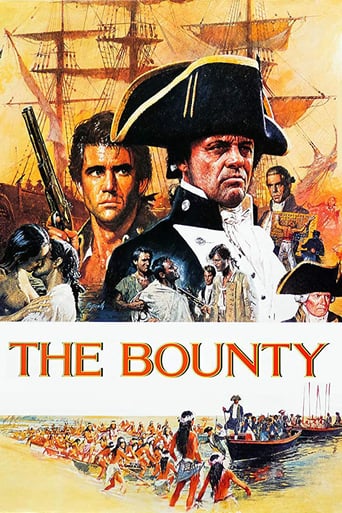
Reviews
Excellent but underrated film
Best movie ever!
Exactly the movie you think it is, but not the movie you want it to be.
The story, direction, characters, and writing/dialogue is akin to taking a tranquilizer shot to the neck, but everything else was so well done.
The only other Schlöndorff movie I was aware of having seen before this was Palmetto, a hyper-twisty neo-noir made in the States . I liked that movie a whole lot, but it didn't prepare me for Homo Faber which is very dense, well made and literary. Definitely not the "man with hot pants" type of neo noir, like Palmetto, The Hot Spot, Body Heat, Romeo is Bleeding &c. Indeed it's not that obviously noir, because it's steers free of many of the cycle's clichés, whilst keeping what is perhaps the essential ingredient: fatalism, wherein an initial mistake spirals out of control and controls your destiny. The film is not conceptual film noir, it doesn't wallow in the plot arc, or the destruction of a character. The only film I feel I can truly compare it to is the English Patient. Both movies have romantic themes, have extremely good literary-based scripts, contain educated well-spoken protagonists, excellent location shooting, unobtrusive period recreation, and take place in eras not too far apart in time.So Homo Faber is a man, Walter Faber, a prodigal engineer, who seems like a laid back cross between Fitzcarraldo and Brunel. He's too caught up in his romance with engineering to seize the moment and the girl. He is reminiscent in this sense of Dominic in Youth Without Youth, and Zetterstrøm in Allegro (excellent films), both love-blind men caught up in their pursuits (linguistics and piano playing). As Cupid is the real God and reigns over drama, these men must be punished.Homo Faber is Latin for The Man Who Forges His Own Destiny, which is ironic, because in the film Faber is subject to a series of extremely rare coincidences, seemingly manipulated by Providence. There's a duality though, because in a very real sense he has forged his own destiny, it's just that it's inescapable.The movie is a luscious wonder, it takes place all over the world in often exotic locations, and the recreation of late 50s period details works really well (there are far too many "look at me" type films where the production team feel the need to introduce absolutely superfluous period details). I mentioned the phrase "the passage of independents", in my title, which needs explaining. You come across many characters in the movie who are independent. Even when Faber is in love and travelling in Europe, quite often he will go off on his own, or she will go off on her own. The folks here are extremely insulated from the manipulations of others. Faber even has the annoying habit of ignoring questions put to him. I think the movie is very ambivalent on the subject of independence, which is displayed as being quite heartless, however on the other hand, you can see, for example, that if Faber had maintained his cloying New York relationship, that would clearly have been the wrong move. So the film allows you to make up your own mind on that subject, and really in the process becomes elegiac.To be more forthright on the subject, the film may indeed be best described as being about the folly of existentialism. Although as mentioned there is a large level of ambiguity to this. Faber, the "intellectual Philistine", at one point draws a blank when Sabeth mentions Camus and his existentialist (although Camus rejected this term) novel The Stranger, and then makes a joke when Sabeth asks him if he knows about Sartre and existentialism, "aren't those the guys who dress in black and drink espresso" (quote from memory). This is despite him being what I would describe as a textbook existentialist himself. He is an authentic person, full of enthusiasm for his own interests, who lives for himself, whilst recognising his level of duty, and its strict limits. When he truly starts to understand love, and, although he feels absolutely nothing in the presence of art, is able to appreciate the happiness of Sabeth whilst she appreciates art, it is too late for Faber.Couldn't recommend it more highly, would help a lot if you liked The English Patient. Is currently available via DVD from Germany.
I thought this picture was nothing short of just plain creepy. I've never read the book and doubt that I ever will. But the whole idea of a man through a series of accidents having intercourse with his daughter is pretty nauseating. The story line, as creepy as it is, is extremely far-fetched to the point of silliness. I felt as though I was watching something almost as facile as "Somewhere in Time." One other point: if a director is intent on making a movie set in another decade, in this case the late 50's, I wish he would take some care to watch over some of the small details. The street scenes in New York are full of modern day cars. Worse yet, there is a scene in which baseball scores are heard over a radio involving the Angels, the Blue Jays and the Royals--none of which were major league teams in the time this story is set in.
Do you know people who say books are better than films? Well, with this one, they hit the nail on the head. I have to question both the intent of the movie, as well the reasons for which it was shot. Homo Faber is a book which engrosses us in character analysis and it's done in such a matter, that a conventional film could never cover it fully.And that's what this is, a conventional film. Walter Faber is way "underdeveloped", his relationships with the people around him are somewhat chaotically put together and in the attempt of emphasizing some of his traits, there are moments in which the film becomes uneven. I can but be disappointed by this work, because it feels fake; everything does: the actors, the circumstances, the "existential questions".A book which is elevated by style and substance can't be the starting point of a movie, unless the film itself aims in achieving the same uniqueness.
The atmosphere, style, and characterization are quite striking and memorable, although some aspects of the plot are simply not credible. I was riveted to my seat by the powerful cinematography and characters. In the end I'm not sure if there is much of a governing 'vision of life' which informs the film, although such a vision might be hinted at occasionally. Not that every film must exhibit such a vision, but the result of such a meandering plotline, as we see here, is a simple yearning for resolution. So why do I give 'Voyager' a high rating? Simply because such memorable and humane images and characters are very hard to come by nowadays.
